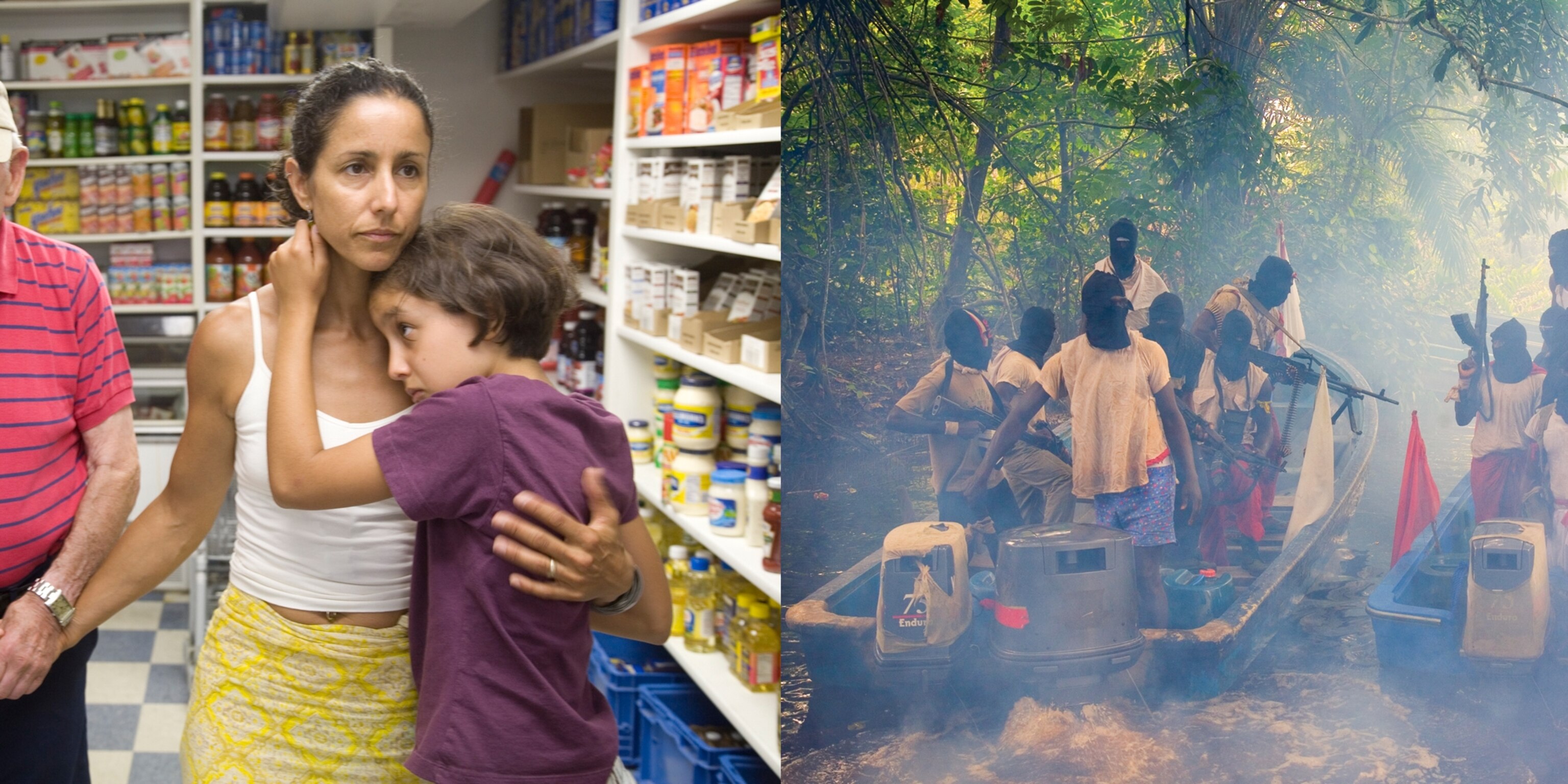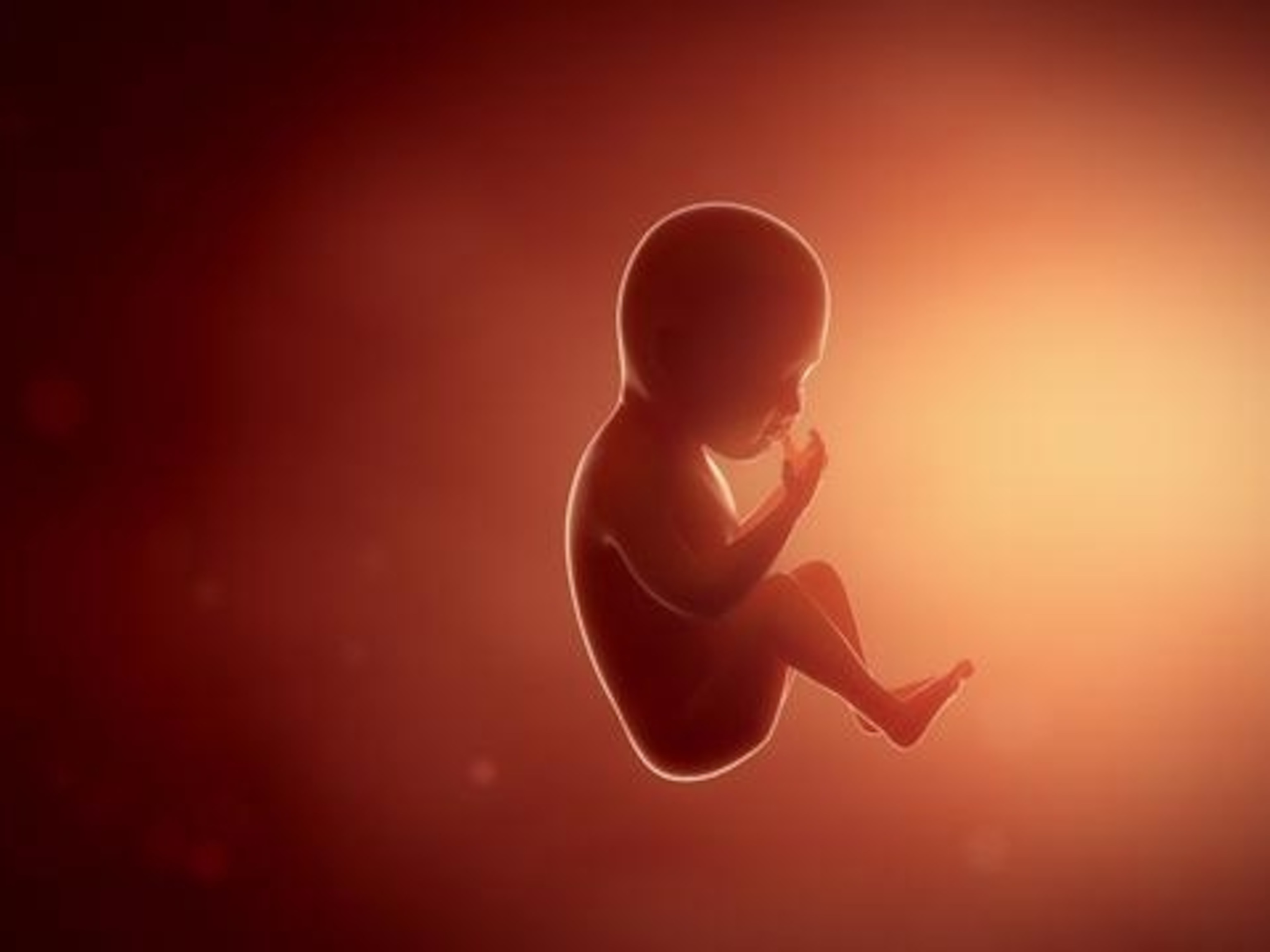




















A Chat With the Kashis: A Photojournalism Family Juggles Chaos and Calm
Conversations is an ongoing series where photographers, editors, and curators talk about concepts in photography as well as recent projects.
Ed Kashi’s story on northern Nigeria’s Islamic insurgency appears in the November issue of National Geographic magazine. His wife, Julie Winokur, is a writer/filmmaker, and co-founder of Talking Eyes Media. They have two children, Eli, 18, a college freshman, and Isabel, 15
In this edition of Conversations, National Geographic senior photo editor Alice Gabriner chats with the Kashi family about love, work, and finding the balance between the two.
Watch Proof’s video interview: Ed Kashi on the Greatest Work You’ll Do

“There is no question that since I’ve had a family, I’ve become a better photographer, a better journalist.”— Ed Kashi
ALICE GABRINER: Ed, you spent six weeks in northern Nigeria, which is one of the most dangerous places for Western journalists. In the month you arrived, foreigners were killed and beheaded. Julie, Eli, and Isabel, how do you feel when you hear that he’s going off to a place like that?
JULIE WINOKUR: It’s literally all they’ve ever known, and we’ve always made normal of it … I don’t think you can conduct this kind of life with fear, and if you are afraid, then he shouldn’t be there and I shouldn’t let him go.
ISABEL KASHI: A lot of the times I know he’s going to a dangerous place … I don’t know exactly how dangerous. We’re so used to it. I don’t mean this in a bad way, but we’re used to not having him around. When he gets back, we’ll occasionally look at the pictures to see what he is seeing through the camera. That’s when I get scared, but he’s already safe at home.
ED KASHI: There’s something I learned in 2003 and 2004 when I was going to Iraq. I was getting all these messages from people [saying things] like, “What are you doing there? Why are you there? You have a family.” And for that reason, there are things I won’t do now. There are stories I won’t do. There are places I won’t go.
In 2009 or 2010 Geographic offered me a story in Afghanistan, and I got to the point where I was in the story meeting and I was quiet, which is very unusual. All I was thinking about was, Baseball season is coming up, and if I take this assignment, I’ll miss the whole thing—plus the dangers. I called back and said, “I don’t think I can do this.” All the top editors of the magazine e-mailed me and said, “We understand.”

“There are a few things that are important and one is regular check-ins.”— Julie Winokur
ALICE: On this trip [to Nigeria], Ed smartly set up a system where he was texting every day to a group of people, including people at the American Embassy in Abuja. At the end of the trip, Ed was detained and sent a text, alerting all of us.
JULIE: You know, I can relive the moment when I get that kind of bad news in an instant, because it’s very intense. Geographic was already immediately on top of it because the whole chain of command and communication was in place. [They have] that sort of immediacy, which [is] very smart and also expedites everything, so that if his communication is cut off, he can feel confident that there are people who have mobilized. And they will continue to mobilize until we make sure he’s okay.
ED: In this particular instance, James Verini, the writer, was stellar. He jumped on it, and he accelerated the response. So I was really thankful and appreciative that he did that. But in 2006, when I was detained for four days in Nigeria, before all of these protocols were in place, Julie was amazing, [as was] Kurt Mutchler [a senior photo editor] at the Geographic. They came through with flying colors as well.
JULIE: In 2006, one of the first things [Ed] said was, “I want you to make sure that you get somebody to go over to where I’m staying and get my hard drives, get everything out of that room that you can,” because there’s always that fear, too, that whatever you have collected or whatever imagery you might have, it will be confiscated by somebody you don’t want to have it.

“Now journalists are much more of a target.” —Ed Kashi
ED: Last week, I [was] contacted by three different people saying, “I’m going to Nigeria.” And I was saying, “Where are you going? Have you been there before? Do you have solid contacts? Do you know what you’re doing? Because it’s really dangerous.” I had enough experience in Nigeria, and working with James, we really solidified a plan. It’s really serious … now journalists are much more of a target.
So in northern Nigeria, it’s not like I had to worry about being hit by mortar or an artillery shell; it was the fear of being kidnapped by al Qaeda, which, quite frankly, is way scarier, and then thinking about the family and the kids and Julie and, you know, it’s like, “What the hell are you doing here?”

ALICE: Do you think having children makes you photograph families and children in a different way?
ED: I’m sensitized to a broader range of human emotion and reality, and so sometimes it’s hard, because I become a mess and break down. Whereas, in the past, I would have looked a little more from a distance, like, “Oh, God, that’s so terrible that baby is dying,” and now I’m a mess.
For me, [having a family] has definitely deepened and broadened my emotional scope and the scope of my understanding of human relations and circumstance. So, if anything, I think it’s made my work better, but sometimes it overwhelms me in the field.

ALICE: Ed, I’ve always heard that you’re fearless in the field. Eli and Isabel, do you think risk taking is something you can learn?
ISABEL: Maybe he’s very fearless in the field, but at home, he’s very, very emotional. I am too. I got it from him. Like right now, I could start crying. You can witness that family emotion. Maybe he is fearless, but at home, he’s a real softy dad.
ELI: Maybe he expresses it being fearless in the field; whereas, I would express it as doing everything I could to make a play [in baseball], or to get an A on a test. [It’s] like a “no regrets” kind of thing.

ALICE: Well, that’s true. Photojournalists are patient, determined. Eli and Isabel, Do you think you’ve learned those skills from your parents?
ISABEL: Yes, definitely.
ELI: I don’t have patience. [Laughter follows.]
ISABEL: I think, most of all, we get work ethic, because your whole life is your work, and now that the office is in our house, it’s firsthand experience. Even when they’re off work, at the dinner table we’re talking about work. I try and tell them not to, but it doesn’t always work.
ELI: Some of my friends will stress out so much, and I’m just kind of like, “Ah, oh, well. If I fail the test, oh, well. Life goes on.”

“They had such a stable home, a stable upbringing, a comfortable environment. They love where we live. They love their friends. They don’t have restlessness, and I think we are both restless.” — Julie Winokur
ALICE: Are there any moments in your life that you feel like he really missed out on?
ELI: He’s really good about checking in. I don’t even know how he does it. If he’s away and it’s baseball season [he’ll say], “How did you do today? Give me stats. Give me stats.” I don’t think he’s really missed out, because he’s doing what he loves.
ED: GNT Final, two years ago?
ELI: Oh, when we won it?
ED: I was up until three in the morning in the U.K. texting. Baseball is a very complicated game to follow through text messaging.

“I’ve gotten both, and I feel really blessed for that. When I can have a moment of clarity … I feel, like, ‘Damn, I really lucked out.'” —Ed Kashi on having both a career and a family
ALICE: Many photojournalists sacrifice a personal life to do the job. Is there a recipe for success?
JULIE: I don’t know how we’ve managed to weather having an intact, healthy, loving family that has stuck together in this profession, because most families don’t make it. Somehow, there’s something in the chemistry. You know, it’s not for most people. Really, it’s not.
ED: This is not a family-friendly profession. It’s very hard. And I feel like I’ve sacrificed my work, even though I know it’s hard to say that, being gone eight months out of the year. I have no regrets. But it’s hard, because if you’re really working at the highest level, you can be gone 300 days of the year.
You have to have a solid mate that believes in you and understands what you do and can accept the sacrifices that will be required, but at the same time, I think the way to make it work is you also have to give. Tell me if I’m wrong, but when I am home, I’m a thousand percent involved.
JULIE: When he’s home, he’s totally present. It’s not like he comes home and just does his own thing. He is so tapped into the kids. I think Ed is exceptional because he has this natural ability to be on top of everything, whether he’s home or whether he’s away. He communicates more than most human beings are capable of communicating. And so there’s a way that he’s able to be present at home, even when he’s not home.

This Q&A has been edited for length and clarity.
View more of Ed Kashi’s work on his website, and follow him on Instagram and Twitter.
You May Also Like
Go Further
Animals
- Octopuses have a lot of secrets. Can you guess 8 of them?
- Animals
- Feature
Octopuses have a lot of secrets. Can you guess 8 of them? - This biologist and her rescue dog help protect bears in the AndesThis biologist and her rescue dog help protect bears in the Andes
- An octopus invited this writer into her tank—and her secret worldAn octopus invited this writer into her tank—and her secret world
- Peace-loving bonobos are more aggressive than we thoughtPeace-loving bonobos are more aggressive than we thought
Environment
- This ancient society tried to stop El Niño—with child sacrificeThis ancient society tried to stop El Niño—with child sacrifice
- U.S. plans to clean its drinking water. What does that mean?U.S. plans to clean its drinking water. What does that mean?
- Food systems: supporting the triangle of food security, Video Story
- Paid Content
Food systems: supporting the triangle of food security - Will we ever solve the mystery of the Mima mounds?Will we ever solve the mystery of the Mima mounds?
- Are synthetic diamonds really better for the planet?Are synthetic diamonds really better for the planet?
- This year's cherry blossom peak bloom was a warning signThis year's cherry blossom peak bloom was a warning sign
History & Culture
- Strange clues in a Maya temple reveal a fiery political dramaStrange clues in a Maya temple reveal a fiery political drama
- How technology is revealing secrets in these ancient scrollsHow technology is revealing secrets in these ancient scrolls
- Pilgrimages aren’t just spiritual anymore. They’re a workout.Pilgrimages aren’t just spiritual anymore. They’re a workout.
- This ancient society tried to stop El Niño—with child sacrificeThis ancient society tried to stop El Niño—with child sacrifice
- This ancient cure was just revived in a lab. Does it work?This ancient cure was just revived in a lab. Does it work?
- See how ancient Indigenous artists left their markSee how ancient Indigenous artists left their mark
Science
- Jupiter’s volcanic moon Io has been erupting for billions of yearsJupiter’s volcanic moon Io has been erupting for billions of years
- This 80-foot-long sea monster was the killer whale of its timeThis 80-foot-long sea monster was the killer whale of its time
- Every 80 years, this star appears in the sky—and it’s almost timeEvery 80 years, this star appears in the sky—and it’s almost time
- How do you create your own ‘Blue Zone’? Here are 6 tipsHow do you create your own ‘Blue Zone’? Here are 6 tips
- Why outdoor adventure is important for women as they ageWhy outdoor adventure is important for women as they age
Travel
- This royal city lies in the shadow of Kuala LumpurThis royal city lies in the shadow of Kuala Lumpur
- This author tells the story of crypto-trading Mongolian nomadsThis author tells the story of crypto-trading Mongolian nomads
- Slow-roasted meats and fluffy dumplings in the Czech capitalSlow-roasted meats and fluffy dumplings in the Czech capital







